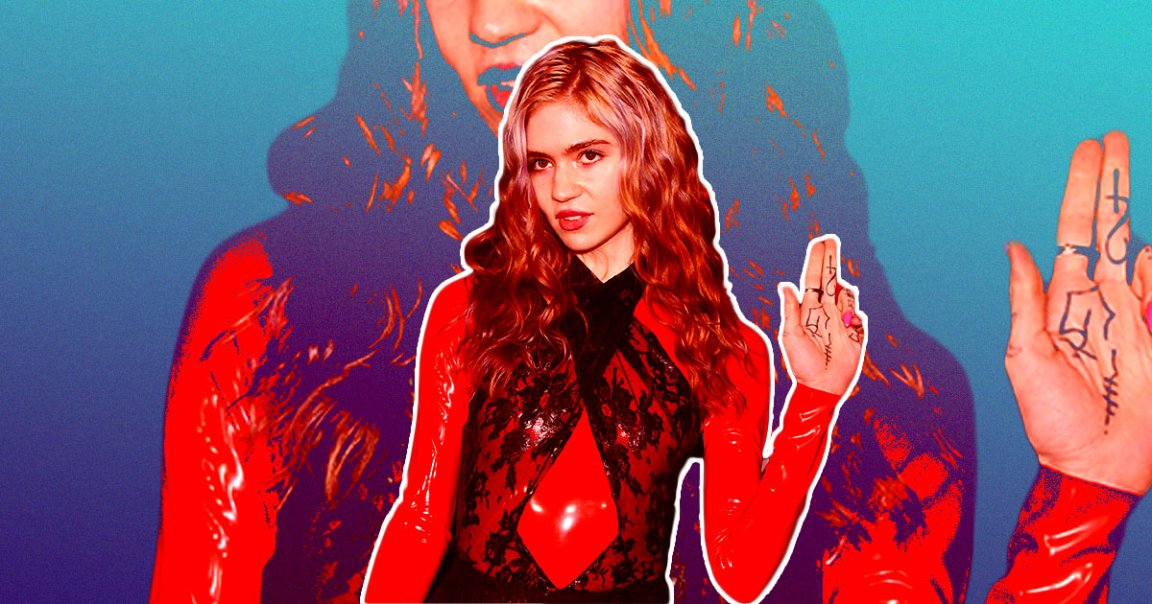
Last month, experimental artist and futurist Claire “Grimes” Boucher announced that she was willing to have artists clone her voice with the use of AI — but only if they were willing to “split 50 percent royalties.”
To put her money where her mouth was, she even created an entire AI generator platform called Elf.Tech specifically designed to copy her voice.
Now, an LA-based artist and producer who goes by the name Kito has released a new track called “Cold Touch,” the first officially released and credited song that features Grimes’ cloned vocals.
The song clearly made an impression, with Grimes lauding the track as a “masterpiece ” and an “amazing song.” Kito’s version will also be followed by other tracks that Grimes collaborated on herself at a later date, according to the artist.
Having listened to the track, we may not go as far as to call it a masterpiece, but it’s a catchy tune that makes great use of Grimes’ synthesized vocals — which themselves, honestly, are the star of the show.

All in, it’s a fascinating experiment that starkly contrasts Grimes’ approach to AI-generated music with that of her industry peers. Major record labels, after all, have been up in arms about tracks that use AI-generated vocals of famed musicians going viral on the internet.
Take Universal Music Group, which forced a song that uses the AI-generated vocals of Aubrey “Drake” Graham and Abel Makkonen “the Weeknd” Tesfaye (who now goes by his birth name) to be taken offline last month.
Grimes, on the other hand, has gone the other way and has chosen to embrace the tech instead.
“Feel free to use my voice without penalty,” she wrote in a tweet last month. “I have no label and no legal bindings.”
“I think it’s cool to be fused [with] a machine and I like the idea of open-sourcing all art and killing copyright,” she added.
She did, however, attempt to get ahead of a possible PR nightmare, adding that “we may do copyright takedowns ONLY for really really toxic lyrics with Grimes’ voice,” such as “baby murder songs” or “Nazi anthems.”
The musician’s newly-created Elf.Tech platform is meant to serve as a way to combat the “gatekeeping in music,” as Grimes said during a recent keynote. “Copyright sucks. Art is a conversation with everyone that’s come before us.”
But given the central role copyright has historically played in the music industry, Grimes’ comments are likely going to prove divisive.
And not just to major record labels. Protecting one’s intellectual property could be the difference between making a living as an artist or being forced out of the industry due to a lack of funds.
Grimes, of course, speaks from a position of immense privilege. She already has a lengthy and successful musical career so far, not to mention that she dated — and had two children with — one of the richest men in the world.
Then there’s the fact that AI generators are already starting to put people out of their jobs. While it’s too early to tell what kind of effect the tech will have on the music industry, there’s already evidence that AI-generated tracks are starting to flood the internet, possibly undermining the efforts of the humans that provided their foundation.
It’s also possible that AI music will feed into corrupt new online economies. Earlier this month, Spotify took down “tens of thousands” of AI-generated tracks, accusing a startup of fraudulently boosting the listenership of those tracks with the use of streaming bots.
Understandably, that’s a future not every musician is going to willingly embrace as the line between AI and human-created content continues to blur.
More on Grimes: Grimes Says She’ll Split Royalties With Anyone Who Deepfakes Her Voice Into a Song